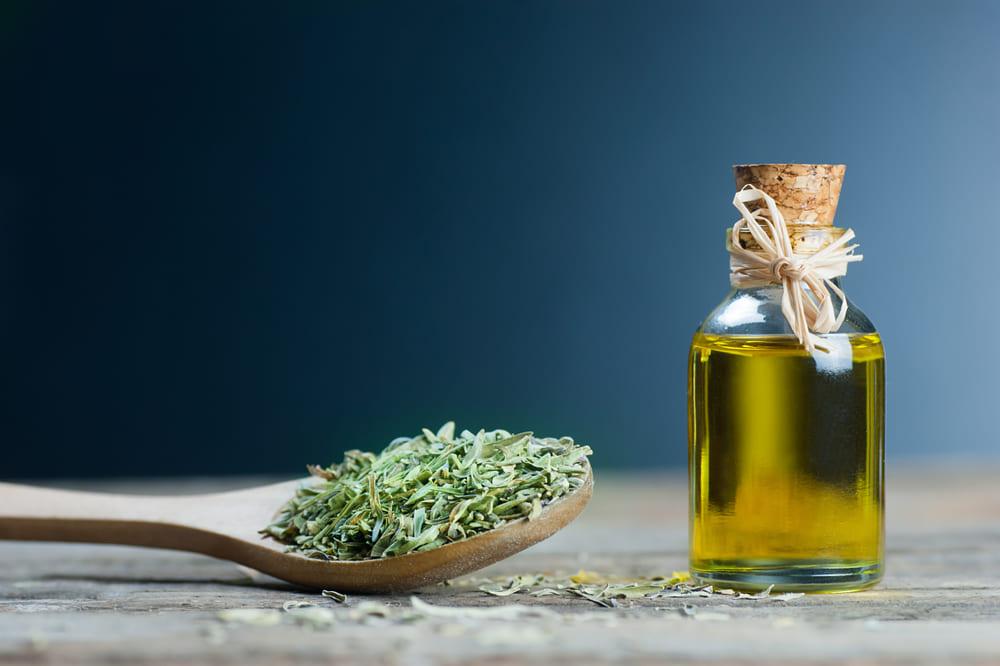Thyme oil, derived from the fragrant thyme plant (Thymus vulgaris), is a powerful essential oil with a rich history in traditional medicine and culinary arts. Known for its antiseptic, antimicrobial, and antioxidant properties, thyme oil has been used for centuries to treat a variety of ailments and enhance overall well-being.
However, like all essential oils, it must be used with care and knowledge.
In this blog post, we’ll explore the benefits of thyme oil, how to use it safely, and its potential contraindications.
What is Thyme Oil?
Thyme oil is extracted through steam distillation of the leaves and flowers of the thyme plant. It contains potent compounds like thymol, carvacrol, and linalool, which contribute to its therapeutic properties. Thyme oil has a warm, herbaceous aroma and is commonly used in aromatherapy, natural remedies, and skincare.
Benefits of Thyme Oil
- Powerful Antimicrobial Properties:
Thyme oil is a natural antiseptic and antimicrobial agent. It can help fight bacterial, viral, and fungal infections, making it a popular choice for treating wounds, acne, and respiratory infections. - Boosts Immune System:
The high concentration of antioxidants in thyme oil helps strengthen the immune system, protecting the body from oxidative stress and free radical damage. - Relieves Respiratory Issues:
Thyme oil is a natural expectorant, meaning it can help clear mucus and congestion from the respiratory tract. It’s often used to alleviate symptoms of colds, coughs, bronchitis, and sinus infections. - Supports Digestion:
Thyme oil can stimulate digestive enzymes, helping to improve digestion, reduce bloating, and relieve stomach cramps. - Reduces Inflammation:
The anti-inflammatory properties of thyme oil make it effective in soothing muscle pain, joint stiffness, and conditions like arthritis. - Promotes Healthy Skin:
Thyme oil’s antibacterial properties make it a great addition to skincare routines. It can help treat acne, reduce redness, and improve overall skin texture. - Enhances Mood and Mental Clarity:
In aromatherapy, thyme oil is known to uplift the mood, reduce stress, and improve focus and mental clarity.
How to Use Thyme Oil Safely
Thyme oil is highly concentrated and should always be diluted before use. Here are some common ways to use it:
- Aromatherapy:
Add a few drops of thyme oil to a diffuser to purify the air and promote relaxation. - Topical Application:
Mix 2-3 drops of thyme oil with a carrier oil (like coconut or jojoba oil) and apply it to the skin to treat acne, soothe muscle pain, or heal wounds. Always perform a patch test first to check for sensitivity. - Inhalation:
Add a few drops of thyme oil to a bowl of hot water, cover your head with a towel, and inhale the steam to relieve respiratory congestion. - Massage:
Dilute thyme oil with a carrier oil and use it for a soothing massage to relieve muscle aches and joint pain. - Mouthwash:
Add a drop of thyme oil to water and use it as a natural mouthwash to fight bad breath and oral infections.
Contraindications and Precautions
While thyme oil offers many benefits, it’s not suitable for everyone. Here are some important precautions to keep in mind:
- Skin Sensitivity:
Thyme oil is potent and can cause skin irritation if used undiluted. Always dilute it with a carrier oil and perform a patch test before applying it to larger areas. - Pregnancy and Breastfeeding:
Thyme oil is not recommended for pregnant or breastfeeding women, as it may stimulate uterine contractions or affect hormone levels. - Children:
Thyme oil should be used with caution in children, as their skin is more sensitive. Always consult a healthcare provider before using it on or around children. - High Blood Pressure:
Thyme oil may increase blood pressure in some individuals. If you have hypertension, avoid using thyme oil or consult your doctor first. - Epilepsy or Seizure Disorders:
Thyme oil contains compounds that may trigger seizures in susceptible individuals. Avoid using it if you have a history of epilepsy or seizures. - Internal Use:
Thyme oil should not be ingested without the guidance of a qualified healthcare professional. Ingesting large amounts can be toxic and cause nausea, vomiting, or dizziness. - Allergies:
If you’re allergic to plants in the mint family (such as oregano or basil), you may also be sensitive to thyme oil.

Thyme oil is a versatile and potent essential oil with a wide range of health benefits, from boosting immunity to improving skin health and relieving respiratory issues. However, its strength and potency mean it must be used with care and respect for its contraindications. Always dilute thyme oil properly, perform patch tests, and consult a healthcare provider if you have any underlying health conditions or concerns.
Have you tried thyme oil?
Share your experiences and favorite uses in the comments below!
Disclaimer: This blog post is for informational purposes only and is not a substitute for professional medical advice. Always consult a healthcare provider before using essential oils, especially if you are pregnant, breastfeeding, or have a medical condition.

